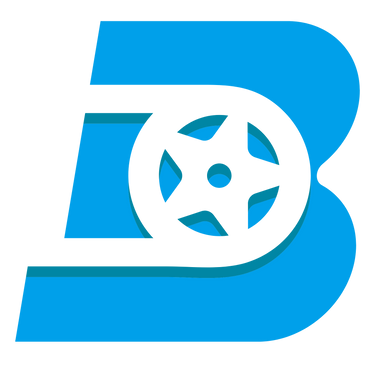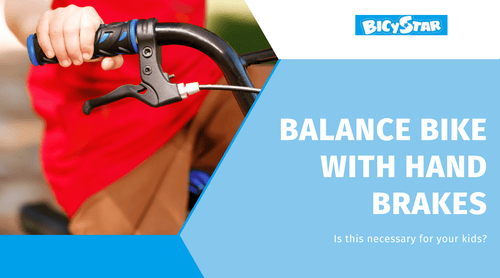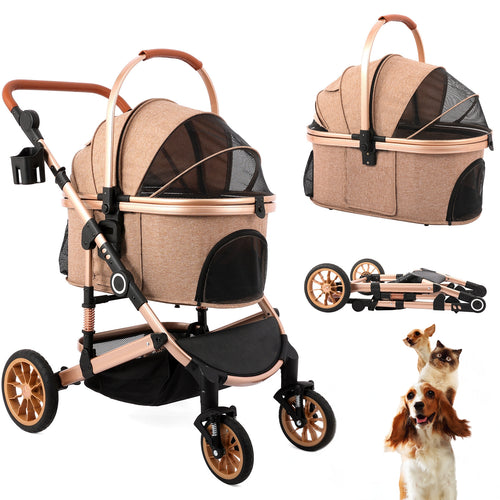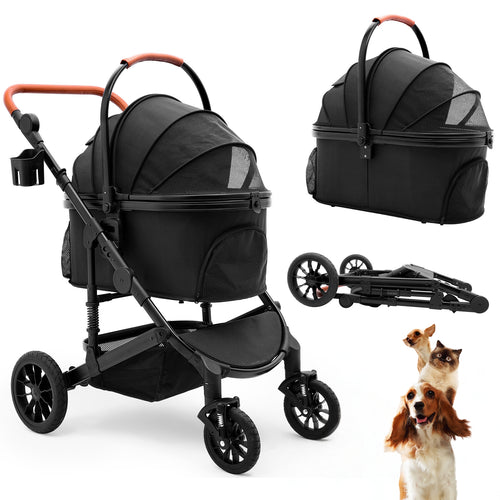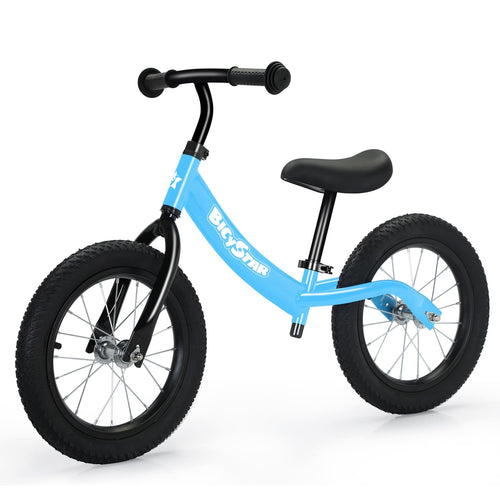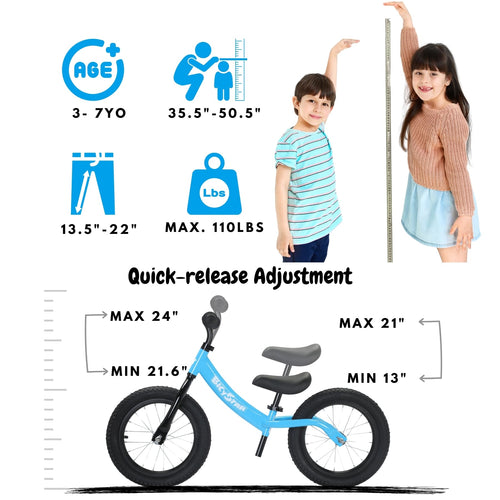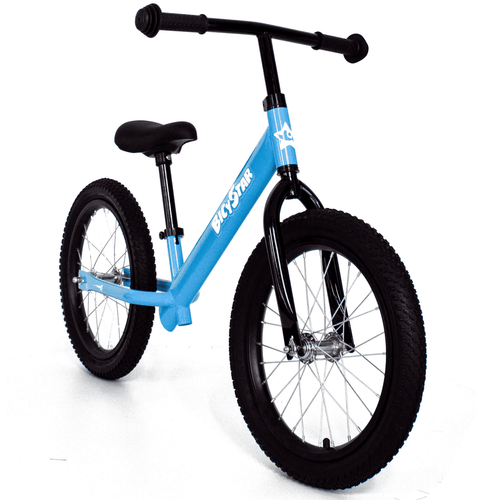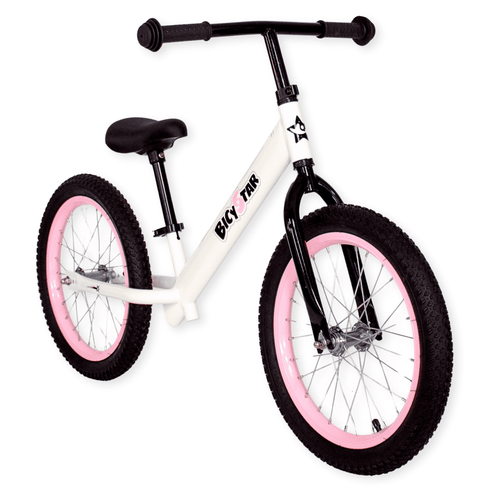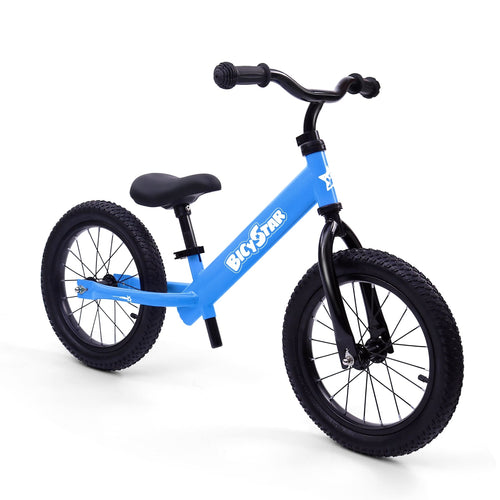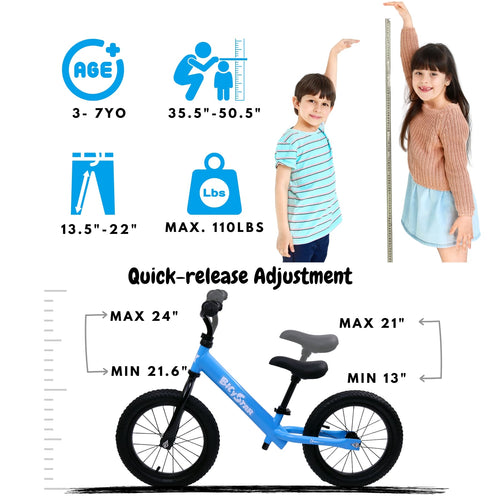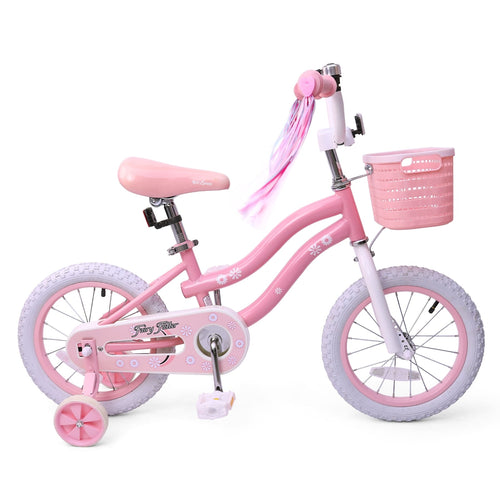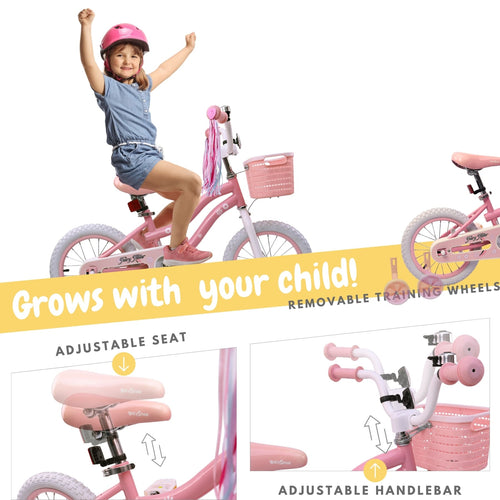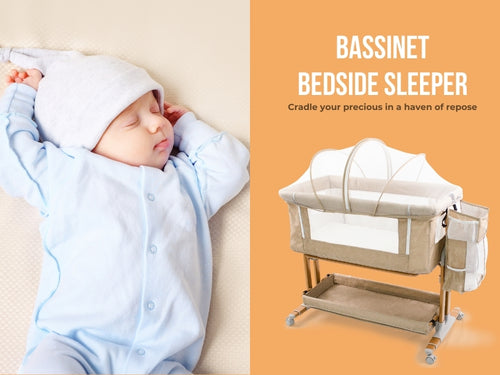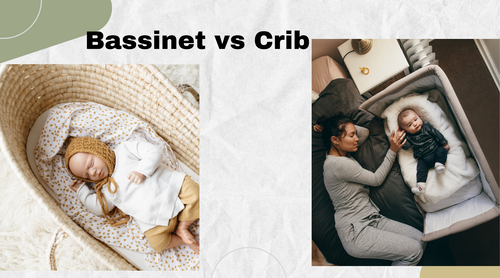What to Know About Balance Bikes
Balance bikes strip away complexity and are designed without pedals, which allows your little ones to master their balance and steering first, a critical step before moving on to pedal kid bikes, and eventually to mountain bikes. This method can significantly ease the transition to regular bikes by focusing on these foundational skills, making it simpler for children to learn to balance and use the bike efficiently, whether they start on a balanced bike or move on to a balanced bike with pedals. What's unique about balance bikes is their adaptability to various age groups, providing a practical start to anyone's biking journey, and showcasing how balance bikes come with versatility and are often the first step before transitioning to a pedal bike.

It’s essential to select a balanced bike that suits your child's size, as this affects comfort and safety when they ride a bike, especially when the balanced bike allows for adjustments and comes with the option of adding a rear brake. These bikes come in multiple sizes, which can be chosen based on the child's age and height, always ensuring that their feet comfortably reach the ground when seated, making it easier to learn how to ride a bike.
Benefits of Balance Bikes for Your Child
Balance bikes are wonderful learning tools for young riders to gain confidence and balance on two wheels. When considering balance bikes with brakes, these models are particularly suited for toddlers older than two years who have the necessary hand strength and coordination to operate them. By introducing hand brakes, young riders can learn how to manage their speed with control, which is a critical safety skill.
However, for younger toddlers, it might be more practical to start with a balance bike without this feature, prioritizing a balance bike for your child that fosters fundamental skills first, and ensuring they can progress onto a pedal bike when ready. Simplifying the learning process by removing brakes can help little ones solely focus on balancing and steering, without the added task of learning how to stop with brakes, but this depends on the budget balance bikes available.

Choosing the Best Balance Bike with Brakes
If you’re opting for a balance bike with brakes, it’s crucial to check the design of the brake lever. It should be easy for small hands to reach and operate. Opting for a lightweight bike will enhance usability because it's easier for kids to handle and control. This minimizes the risk of toppling over and makes it easier for them to pull to a stop.
This convertible balance bike adapts to your growing child by transforming from a balance bike to a balance bike with brakes. There are many balance bikes on the market now, equipped with brakes, when you buy a bike for kids, it offers longevity and versatility, two critical factors when choosing a good quality balance bike.
Everything You Need to Know About Balance Bike Size and Safety

Choosing a balance bike size is not just about comfort—it’s crucial for safety and ensuring that the bike with a minimum seat height is appropriate for your child. The right bike size will ensure your child can place both feet flat on the ground, providing stability and control as they learn to ride. While looking at different models, it’s not just the height that matters but also the weight of the bike, as heavier models can be more challenging for a child to maneuver. All of this requires good exercise for children's balance and control, a balance bike teaches children to grow up.
Always prioritize safety, especially when it comes to bikes and balance bikes. Assess the build quality of the bike and particularly the brakes if you decide on a model equipped with them.
How to Teach Your Child to Ride a Balance Bike with Brakes
Begin on a flat, secure surface, allowing your child to walk with the bike first, a fundamental step in ensuring that a balanced bike is an experience filled with safety and enjoyment. This first step is about getting them comfortable with the bike's weight and learning how they can control it while walking and using the balanced bike. Gradually, they should start to lift their feet off the ground, gliding for short periods, a testament to how a balanced bike is a fun way to learn balance and coordination, essentially walking the bike without realizing it. Once they’re comfortable with this, introduce them to the concept of braking on a balance bike.

Teaching braking should be a gentle process, especially for those new to balance bikes, as understanding how to effectively use brakes on their balance bike is crucial. Encourage your child to press lightly on the brakes at first, getting used to how they can control and stop the bike themselves. With regular practice, they’ll naturally grasp both balancing and efficient use of brakes, setting a solid foundation for future cycling adventures, underlining how balance bikes are usually the first step in a lifelong cycling journey.
Key Takeaways
- Balance Focus: Focus first on teaching balance and steering; the basics without the complexity of pedals.
- Choosing Brakes: Brakes are beneficial for children over two who can handle them and are not necessary for younger kids.
- Size Matters: Ensuring the right size of the balance bike is crucial for a safe and enjoyable learning experience, reinforcing the idea that selecting the right inch balance bike is fundamental for early riding success.
- Teaching Strategy: Initially focus on balance and gradually introduce braking once your child is comfortable.
- Safety Checks: Regularly check that the bike remains sturdy and functional, emphasizing quality, especially in brakes.
Whether you decide on a balance bike with or without brakes, remember that the goal is to provide a safe, fun, and educational experience for your child that sparks a lifelong enjoyment of cycling. Always choose features that match their current abilities and encourage their confidence, particularly selecting a balance bike with features that can grow along with them, like adjustable balance bike frames. Happy cycling!
Remember, every bike geek starts with the basics, including mastering the majority of balance bikes.

